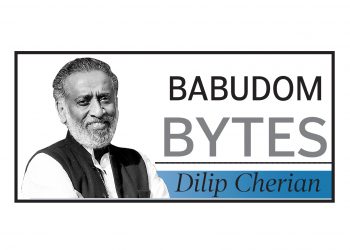The Centre is reportedly mulling over a crucial amendment to the TRAI Act, aiming to reshape the telecom sector. This change would allow senior corporate executives to become TRAI’s chairperson, a significant shift towards greater private participation in key regulatory positions.
The proposed Telecommunications Bill could specify that the TRAI chairperson can come from the private sector, provided they possess a minimum of 30 years’ experience in senior executive positions, such as board members or CEOs.
Currently, TRAI requires its members to have held government posts equivalent to secretary or additional secretary for at least three years, without specific criteria for the chairperson’s appointment. The current TRAI chairperson PD Vaghela and his predecessor RS Sharma, both had government roles before their appointments.
This proposed amendment opens doors for private sector leaders with extensive experience, irrespective of government service, to lead TRAI. It would amend Section 4 of the TRAI Act, 1997, granting the Centre the authority to appoint individuals with specialised knowledge in telecom, industry, finance, accountancy, law, management, or consumer affairs to head the regulatory body.
The move is a pivotal moment in India’s telecom history, acknowledging the private sector’s role in innovation and competition. Moreover, the move aligns with India’s broader vision of fostering a pro-business environment, attracting investment and bolstering digital infrastructure. While some may express concern about potential conflicts of interest, stringent eligibility criteria and safeguards should ensure impartiality and transparency.
HC quashes proceedings against retired babus
A recent pronouncement by the Karnataka High Court has focused attention on the complexities of accountability and the rule of law. The court has quashed criminal proceedings and an ongoing probe against three retired IAS officers, marking a significant turn of events in a case that revolves around alleged financial irregularities within the Rural Development and Panchayat Raj (RDPR) Department, dating back to 2009-15.
The crux of the matter is the accusation that six officers of the RDPR Department, including the three retired IAS officers, were responsible for causing a loss of Rs 269 crore to the state exchequer due to the alleged misappropriation of funds during the specified period. In a system where the wheels of justice are known to grind slowly, the High Court’s intervention has thrust this case into the public eye, as also the fact that the officers are former principal secretaries Amita Prasad and TM Vijay Bhaskar (the latter also being a former chief secretary) and EV Ramana Reddy, who recently retired after serving as Additional Chief Secretary. These officers had all worked in the RDPR Department during the years 2011-15.
The High Court, responding to a petition filed by the officers challenging the proceedings against them, said the special court could not have taken cognisance in the absence of the competent authority for proceeding against the officers, based on a private complaint. The petitioning officers had claimed that as public servants at the time, it was mandatory to obtain sanctions to prosecute them.
Interestingly, the High Court ruling does not exonerate the retired IAS officers or absolve them of the charges against them. Instead, it raises a crucial question about the procedural integrity of the case. It highlights the significance of adhering to the rule of law, even when pursuing those in positions of authority.
IAS versus IPS officers in UP turf war
In the intricate corridors of Uttar Pradesh’s political landscape, the enduring tug-of-war between IAS and IPS officers has a long history. Under Chief Minister Yogi Adityanath’s leadership, this persistent power struggle has once again taken the spotlight, with recent events shining a glaring light on this unending tussle.
A fresh set of guidelines, aimed at reviewing development and law and order in UP, triggered unease within the IPS ranks. Last month, UP’s Chief Secretary Durga Shanker Mishra issued an order decreeing that district magistrates (DMs) would assume the responsibility of overseeing law and order in 68 out of 75 districts. This meant that the DMs would preside over monthly law and order meetings, with attendance from senior police officers, additional district magistrates, prosecutors and station house officers (SHOs).
In the remaining seven districts, including Agra, Ghaziabad, Kanpur, Lucknow, Noida, Prayagraj and Varanasi, the police commissioners would be responsible under the police commissionerate system. The order quickly sparked uproar among the senior UP Police officers, prompting them to take up the matter with the Chief Minister. Within hours, Yogi Adityanath intervened and revoked the controversial order.
Sources have informed DKB that this is not the first instance of such a power play. In 2017, a similar order was issued and then swiftly withdrawn after vociferous protests from the top brass of the IPS. Then the following year, a government order mandated that district police chiefs consult with DMs when appointing SHOs. This directive too resulted in friction in several districts, further intensifying the simmering tensions between these two elite services.
This latest episode has deepened the conviction among senior police officers that it was just another attempt of the IAS lobby to nibble away at the powers of the state police. Such a situation does not auger well for the two services or the public morale in Uttar Pradesh.
By Dilip Cherian






































